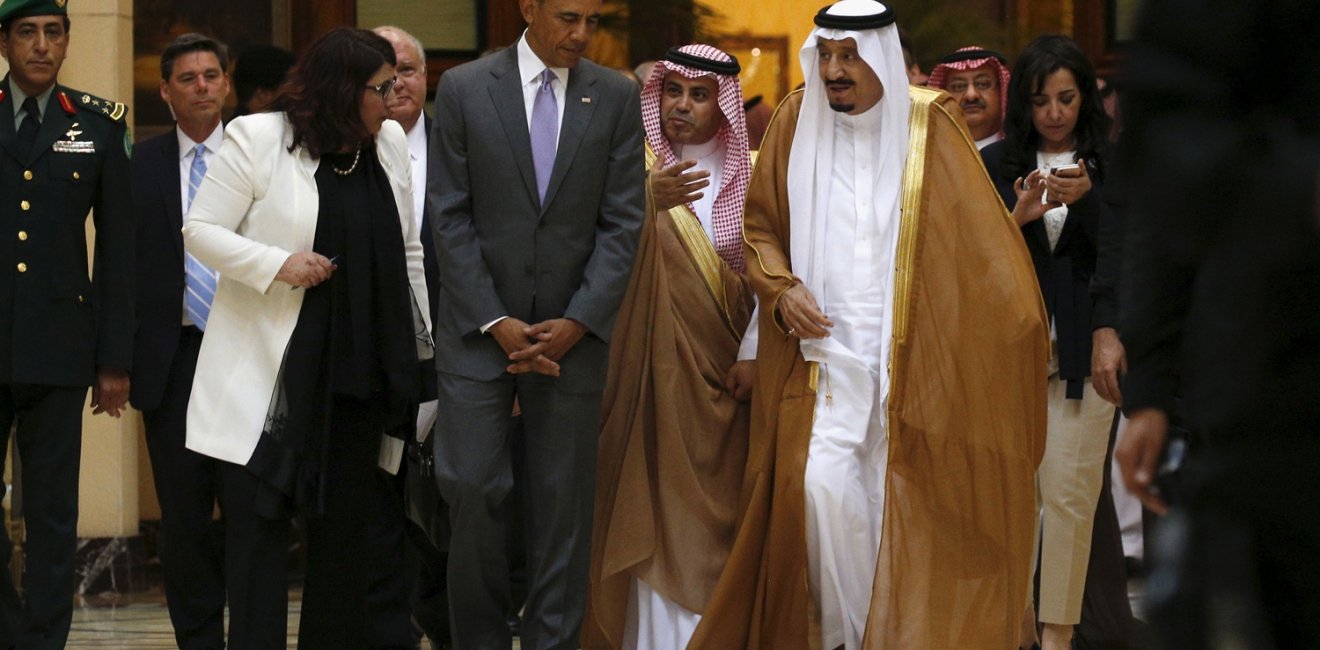With Term Waning, Barack Obama Aims to Stabilize Relations in Middle East
In the last year of his presidency, Barack Obama is finally learning that imperfect partners in the Middle East are better than no partners at all, writes Aaron David Miller.
In the last year of his presidency, Barack Obama is finally learning that imperfect partners in the Middle East are better than no partners at all, writes Aaron David Miller.

Life’s about learning, Crosby, Stills, Nash and Young famously sang. And it may well be that in the last year of his presidency, Barack Obama is finally learning that imperfect partners in the Middle East are better than no partners at all, particularly for a president disinclined to invest in a large U.S. presence in the region.
None of this means that relations with Saudi Arabia, Egypt and Israel will fundamentally improve before 2017 — too many divergent interests preclude that. But recent U.S. efforts suggest that Mr. Obama may at least want to stabilize them. With the Middle East a mess, he can’t afford to hand to his successor three relationships in crisis.
Mr. Obama’s recent visit to Saudi Arabia – his fourth since taking office (he’s visited Israel and Egypt only once) reflects the continued importance of the Kingdom in U.S. foreign policy, however strained the relationship has become. Declining dependence on Arab hydrocarbons, differences over Iran and Syria, and the famously missing 28 pages in the 2002 Congressional report that might contain damning information on official Saudi knowledge or role in 9/11 have injected tension into the relationship. Still, the president’s visit wasn’t a disaster and led to new areas of cooperation between the U.S. and the Gulf Cooperation Council. Mr. Obama is likely to hand over to his successor a U.S.-Saudi relationship that, while still fraught with significant divides, is functional and working to the advantage of both.
Relations between Washington and Cairo have been rocky ever since the fall of the Mubarak regime and military coup that removed the Muslim Brotherhood from power. At the time the U.S. temporarily suspended military assistance (since restored) and seems increasingly to have realized that trying to influence the country’s internal politics was only making matters worse without any results. Last week, Secretary of State John Kerry made a brief stop in Cairo, apparently to try to smooth over differences between the two on human rights. Mr. Kerry made it unmistakably clear Washington preferred stability over significant political change and wouldn’t push Egypt to do much on the latter.
“You have no idea what will happen to the region and to Europe if this nation collapse, Mr. Kerry said.
More than likely we’ve seen the end of most of the drama that has turned the relationship between Mr. Obama and Prime Minister Netanyahu into an almost eight-year soap opera. The major source of the dysfunction was the U.S.-Iran nuclear accord; and while the government of Israel is hardly happy about it, Mr. Netanyahu seems to have acquiesced. Israel and the U.S. are also struggling to craft a ten-year security assistance pact. But this agreement is more likely to get done this year than not.
Mr. Obama would like to avoid giving the Republicans a hammer to use against Hillary Clinton, and there is little worth fighting about with Israel in the eight months that remain before the presidential election. One potential wild card: whether the president wants to make a run at a peace initiative on the Palestinian issue, perhaps through a U.N. Security Council resolution that would outline terms for a settlement. This would be certain to anger Mr. Netanyahu. But if Mr. Obama does this after the November elections, it could mitigate problems for a potential Democratic successor.
If Mr. Obama left office today he’d leave the relationships with America’s three most important partners worse than when he found them; and relations with one of Washington’s erstwhile adversaries – Iran — better. This is hardly an unadulterated accomplishment; and of course is one of the reasons why U.S. relations with Israel and Saudi Arabia have been so strained. Still, if the Obama administration wants to help stabilize the region, it will at least have to keep its relations with its traditional friends — however imperfect they may be – as functional and even keeled as possible. This challenge isn’t going to be Mr. Obama’s alone. It will also hang over the head of the next person who sits in his chair.
The opinions expressed here are solely those of the author.
This article was originally published in the Wall Street Journal's Think Tank blog.


The Wilson Center’s Middle East Program serves as a crucial resource for the policymaking community and beyond, providing analyses and research that helps inform US foreign policymaking, stimulates public debate, and expands knowledge about issues in the wider Middle East and North Africa (MENA) region. Read more




